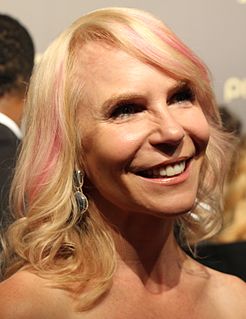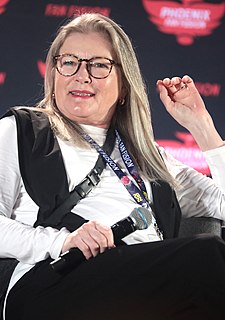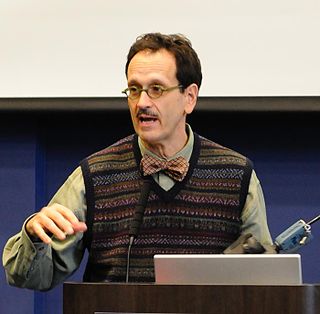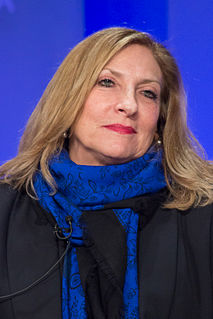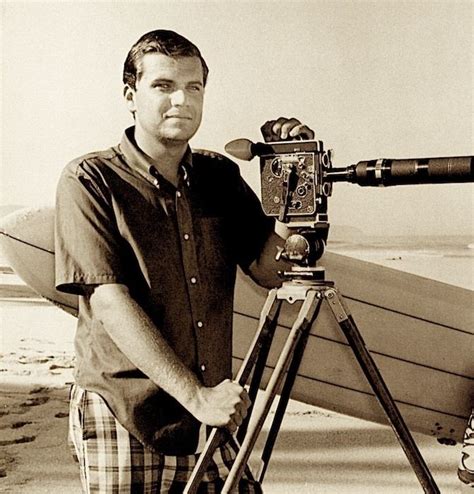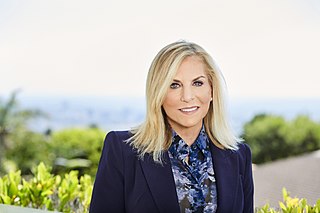A Quote by Marti Noxon
We're in the second golden age of television, and to me, one of the most profound things that's happening in TV is just that by default that opened the door to more women, more people of color, more outliers. It's one of the greatest side effects of the digital revolution.
Related Quotes
It's the digital era. What makes it exciting is that it's both the Golden Age of television and the Wild West of television. Something is happening now that's unprecedented, and we know that we're a part of it. What could be more exciting or better than that? You can't lose because you're on the pony and you're staking the claim.
Everything has changed since I started recording in 1972. But the very things that have opened this industry, like the digital platforms to reach more people, have also killed things that were happening before in the recording studio. Now, most of the time, there are no real musicians in the studio; it's people with sequencers and things.
My hope as an actress is knowing that I'm someone who is more privileged - I'm biracial and lighter-skinned - and I hope it can open up the door for more women of color, especially darker-skinned black women. I hope everyone hops on the bandwagon and decides to start putting women of color in movies that aren't just about race.
People over the age of thirty were born before the digital revolution really started. We've learned to use digital technology-laptops, cameras, personal digital assistants, the Internet-as adults, and it has been something like learning a foreign language. Most of us are okay, and some are even expert. We do e-mails and PowerPoint, surf the Internet, and feel we're at the cutting edge. But compared to most people under thirty and certainly under twenty, we are fumbling amateurs. People of that age were born after the digital revolution began. They learned to speak digital as a mother tongue.
War is not a computer-generated missile striking a digital map. War is the color of earth as it explodes in our faces, the sound of child pleading, the smell of smoke and fear. Women survivors of war are not the single image portrayed on the television screen, but the glue that holds families and countries together. Perhaps by understanding women, and the other side of war ... we will have more humility in our discussions of wars... perhaps it is time to listen to womens side of history.
What really turns me on about technology is not just the ability to get more songs on MP3 players. The revolution - this revolution - is much bigger than that. I hope, I believe. What turns me on about the digital age, what excites me personally, is that you have closed the gap between dreaming and doing.
We do not need more material development, we need more spiritual development. We do not need more intellectual power, we need more moral power. We do not need more knowledge, we need more character. We do not need more government, we need more culture. We do not need more law, we need more religion. We do not need more of the things that are seen, we need more of the things that are unseen. It is on that side of life that it is desirable to put the emphasis at the present time. If that side be strengthened, the other side will take care of itself.
The advertising marketplace is moving rapidly into digital videos. We know that by 2018 it is estimated that it will be a $12.2 billion business. We've been seeing the agencies combine their digital video spend with television spend and put it under one spend and just calling it "video." The pool of money is becoming much bigger. The comparisons between television and digital video are being made much more often because you can account for who's watching, you can't fast-forward through the commercials. There's a much more intimate relationship with someone watching digital video.
One of the problems with industrialism is that it's based on the premise of more and more. It has to keep expanding to keep going. More and more television sets. More and more cars. More and more steel, and more and more pollution. We don't question whether we need any more or what we'll do with them. We just have to keep on making more and more if we are to keep going. Sooner or later it's going to collapse. ... Look what we have done already with the principle of more and more when it comes to nuclear weapons.
I think there are great roles for women in television because there is time to allow those characters to evolve. Even if you're the wife or the girlfriend or whatever it is that we women are, playing those things on TV, they are much more drawn out and there are greater arcs for the role. The roles are more integral to the complexity of the story.
